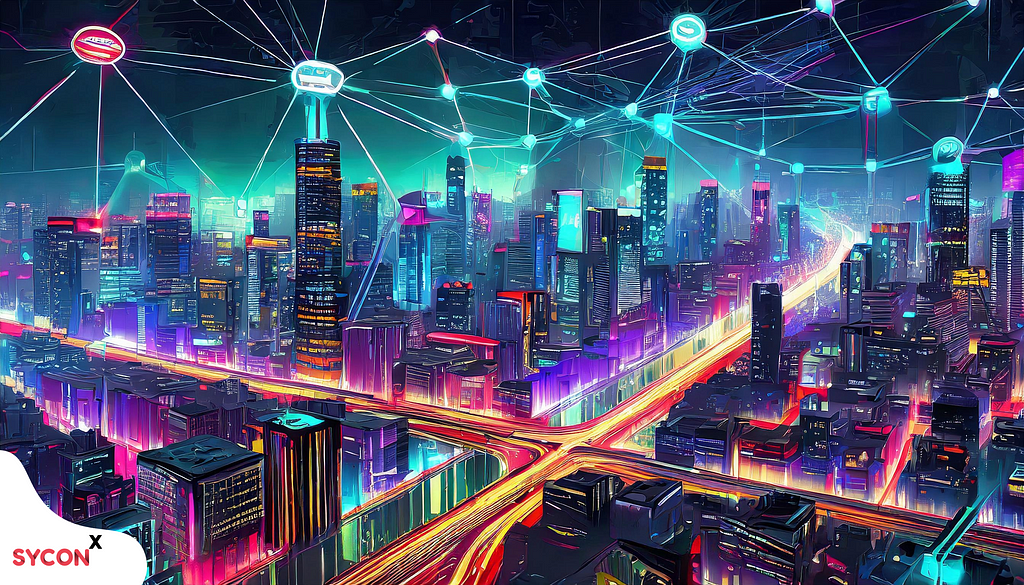The Role of IoT in Smart City Development
March 27, 2024

The concept of smart cities has been gaining momentum globally, driven by the relentless innovation in technology. At the heart of this urban transformation is the Internet of Things (IoT), a network of interconnected devices that communicate and share data. IoT’s role in smart city development is pivotal, providing the foundation upon which cities can become more efficient, sustainable, and livable. This exploration into IoT’s contribution to smart cities uncovers how it’s not just reshaping our urban environments but also redefining what it means to live in them.
Interconnectivity: The Backbone of Smart Cities
IoT technology enables a level of interconnectivity that was previously unimaginable. In smart cities, everything from streetlights and traffic signals to water meters and waste management systems can be connected. This interconnectedness allows for the seamless exchange of data, facilitating real-time responses to urban challenges. For instance, traffic lights can adjust in real-time to traffic conditions, reducing congestion and improving urban mobility.
Enhanced Public Safety and Security
One of the most significant impacts of IoT in smart cities is the enhancement of public safety and security. IoT devices such as surveillance cameras and emergency alert systems can work in unison to provide comprehensive security solutions. These systems can detect and respond to incidents faster than ever before, from identifying suspicious activities using AI-powered video analytics to providing emergency services with real-time data during crises.
Sustainable Urban Living
Sustainability is a core objective of smart city initiatives, and IoT plays a crucial role in achieving it. Through smart grids and energy-efficient buildings, IoT helps in optimizing energy consumption, reducing carbon footprints. Similarly, smart waste management systems ensure efficient recycling and waste reduction. IoT-enabled environmental monitoring systems also provide invaluable data on air and water quality, guiding policies for a healthier urban environment.
Improving Urban Infrastructure and Services
IoT’s data-driven insights are invaluable for urban planning and the management of city services. By analyzing data collected from various sources, city administrators can make informed decisions about infrastructure development, maintenance, and upgrades. This proactive approach to urban management not only enhances the quality of city services but also extends the lifespan of critical infrastructure.
Citizen Engagement and Smart Governance
Smart cities leverage IoT to foster a more engaged and informed citizenry. IoT applications such as mobile apps and kiosks provide citizens with easy access to city services and information, enhancing transparency and accountability in governance. Moreover, IoT facilitates participatory governance models, where citizens can contribute to decision-making processes, strengthening the bond between city authorities and residents.
Challenges and Considerations
While the benefits of IoT in smart city development are immense, they come with their set of challenges. Privacy and security concerns top the list, given the vast amounts of data collected and processed. Ensuring robust cybersecurity measures and strict data privacy regulations are essential to protect citizens’ information and maintain trust. Additionally, the digital divide poses a risk of exacerbating social inequalities, making it imperative to ensure equitable access to smart city benefits.
The Road Ahead
The future of urban development is undeniably intertwined with the advancement of IoT technology. As we continue to explore the potential of IoT in creating smarter, more sustainable, and livable cities, the focus must also be on addressing the challenges that come with it. Collaboration between technology providers, city planners, policymakers, and citizens is crucial in realizing the vision of truly smart cities.
Conclusion: A Smarter, Connected Future
The role of IoT in smart city development is transformative, offering a blueprint for urban environments that are more connected, efficient, and sustainable. By harnessing the power of interconnected devices and the data they generate, smart cities can respond to urban challenges in real-time, improve the quality of life for their inhabitants, and pave the way for a sustainable future. The journey towards smart cities is a collaborative endeavor, one that requires the collective effort of all stakeholders to ensure a brighter, smarter future for urban living.
The Role of IoT in Smart City Development was originally published in SyconX on Medium, where people are continuing the conversation by highlighting and responding to this story.


